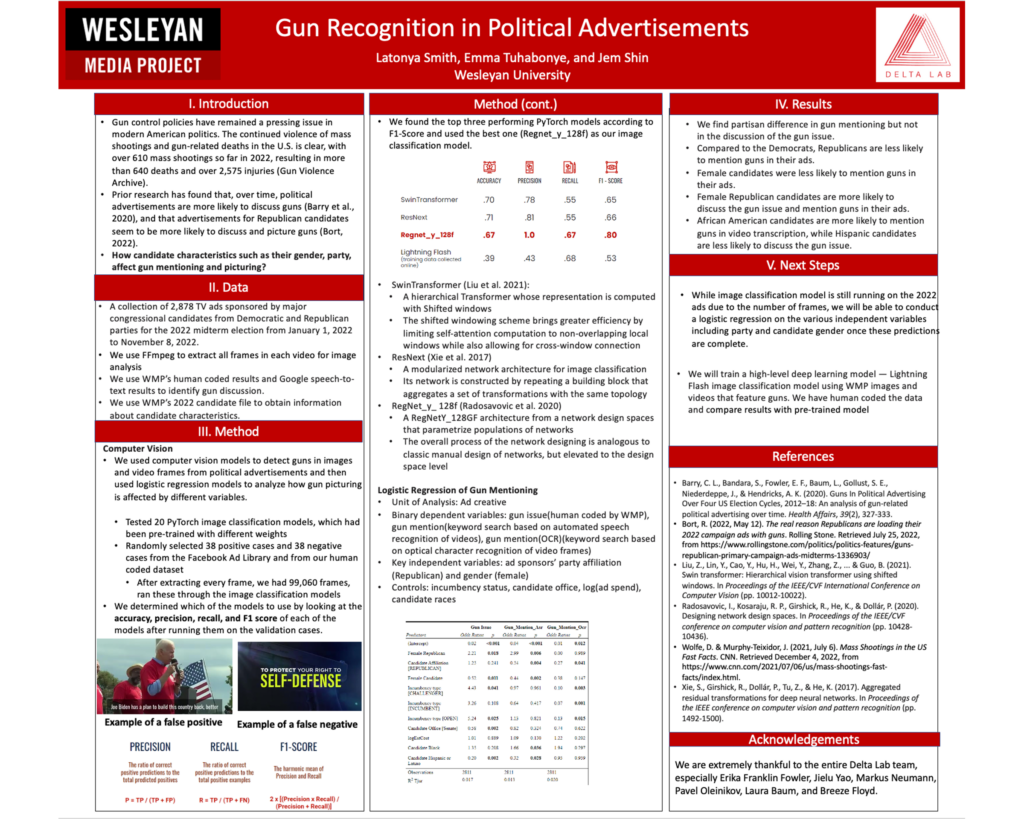By Latonya Smith ’24, and Emma Tuhabonye ’23
Due to persistent worries about gun violence and mass shootings, the question of gun regulation has become a highly divisive one in current American politics. In this regard, the goal of our research was to gain insight into how candidate traits, such as gender and partisanship, may affect whether and how candidates discuss and feature guns in political advertisements. We used deep learning models to detect weapons in political ad images and video frames. In particular, we evaluated the performance of SwinTransformer, ResNext, and RegNet_y_128f on gun detection, finding that RegNet_y_128f outperforms the other models and achieves an F-1 score of 0.8 on our validation set.

In this preliminary study, we used logistic regression models to examine how various factors influenced the mention of guns. Our binary dependent variables indicate whether an ad is about a gun issue, whether it mentions guns in the transcription, and whether it mentions guns in video frames. We find that Republicans were less likely than Democrats to discuss guns in their advertising, indicating a partisan difference on the subject. While female candidates in general were less likely to mention guns than their male counterparts in ad transcription, Republican women were more likely to discuss guns than Democratic women. This research suggests that the discussion of gun control laws in political campaigns is heavily influenced by the intersection between gender and party affiliation.
We also examined how other candidate traits affected gun mentions in political ads. Our research revealed that while Hispanic candidates were less likely to bring up the subject of weapons in video transcription, African American candidates were more likely to do so. These results suggest that race and ethnicity also affect the discussion of gun control policies in political campaigns.
Overall, our research adds important insights on how guns are discussed and portrayed in political advertisements and clarifies how candidate traits affect the debate over gun control. We intend to add to the continuing discussion about gun violence and potential legislative remedies in contemporary American politics by better understanding these aspects.
Check out more student posters:
• Facebook Ads and Campaign Styles, and Issue Based Networks
• Evaluating Automatic Speech Recognition Models on Digital Advertisements by Latine Candidates

